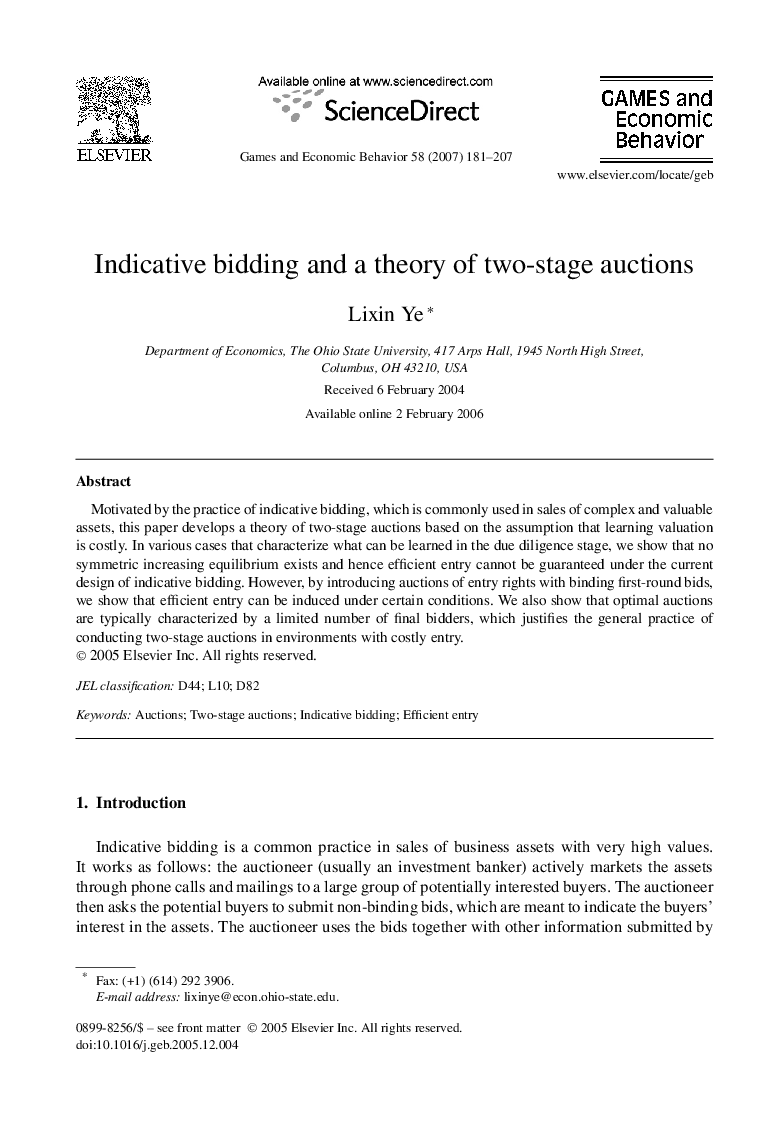| Article ID | Journal | Published Year | Pages | File Type |
|---|---|---|---|---|
| 5072983 | Games and Economic Behavior | 2007 | 27 Pages |
Motivated by the practice of indicative bidding, which is commonly used in sales of complex and valuable assets, this paper develops a theory of two-stage auctions based on the assumption that learning valuation is costly. In various cases that characterize what can be learned in the due diligence stage, we show that no symmetric increasing equilibrium exists and hence efficient entry cannot be guaranteed under the current design of indicative bidding. However, by introducing auctions of entry rights with binding first-round bids, we show that efficient entry can be induced under certain conditions. We also show that optimal auctions are typically characterized by a limited number of final bidders, which justifies the general practice of conducting two-stage auctions in environments with costly entry.
